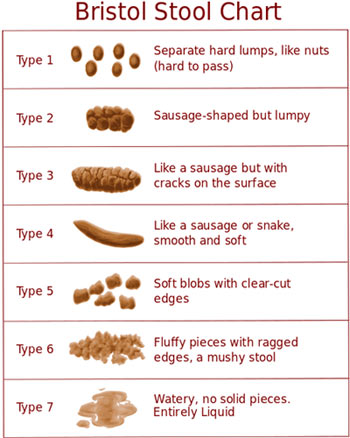

Any more could indicate problems with malabsorption and any less than once daily, in our clinical opinion, could indicate (as with slow transit time) constipation and imbalanced gut flora, toxin build-up and increased risk of fermentation (gas and bloating), SIBO and pathogenic infections. Medical guidelines suggest that anywhere from three times per day to three times per week is within ‘normal’ range (7). FREQUENCY MEASUREMENT What is it and what does it tell us?Īlthough there isn’t a ‘perfect’ number of bowel movements you should have per day, aiming for once a day is a good place to start. > Given the many variables affecting transit time, it is recommended you complete the transit time test three times and at different times of the day to get a better average measurement to go on.Ģ. > Some foods will naturally move slowly or quickly through our digestive system depending on their fibre and water content, as well as on what else we have eaten or drunk the same day (water, caffeine, alcohol, etc.) > Men tend to have faster transit times than women, even when eating the same diet (6) and compare to the ideal range of 12-48 hours. Be on the lookout for the food marker in your stool and record the date and time you first pass it in a bowel movementĥ. Record the date and time you eat the food markerĤ. > Red beetroot - one cup of cooked beetroot, eaten alone about an hour away from other foodģ. > Sesame seeds - two teaspoons of sesame seeds, mixed into a glass of water and swallowed whole, eaten alone about an hour away from other food.

> Corn kernels - one cup of cooked corn, eaten alone about an hour away from other food. Do not eat the food designated as the marker for a week before you do the testĢ. While a doctor might use dyes that show up on an X-ray, we can do a similar test at home using a ‘food marker’ - something that will easily show up in your stool. In addition to nutrient deficiencies, this might also be a sign of some more serious conditions like IBD, Ulcerative Colitis, Celiac Disease or Crohn’s (5). Too fast: A rapid transit time of less than 10 hours means your food is passing through your digestive system too quickly and that you might not be absorbing the nutrients from your food properly (4). Too slow: Anything longer than 72 hours is considered a sign of constipation and can indicate imbalanced gut flora, toxin build-up and increased risk of fermentation (gas and bloating), SIBO and pathogenic infections (2, 3).Ģ. The ideal bowel transit time is anywhere from 12 to 48 hours, with variations telling us one of two things:ġ. That is, how quickly your dinner goes from table to toilet. “Bowel transit time” is the time it takes for the food we eat to travel through our digestive system and get eliminated in a bowel movement (1). THE TRANSIT TIME TEST What is it and what does it tell us?
WEEKLY FOOD POOP DIARLY FREE
But, these DIY tests are basically free and will give you an amazing insight into the health of your inner eco-system.ġ. Yes, perving on your own poop is part of the deal. And while we can do proper functional lab tests to identify conditions like SIBO, Leaky Gut, dysbiosis and infections like parasites, candida and bad bacteria, there are a few DIY Gut Health Tests you can do at home to get an idea of the state of your gut health and see if there are clues about whether you need proper testing. Especially because it has such a big impact on almost every aspect of our overall health, including our immune system, allergies and sensitivities, autoimmunity and even our weight. So you might be wondering just how healthy yours is.


 0 kommentar(er)
0 kommentar(er)
